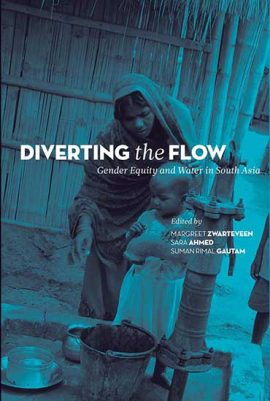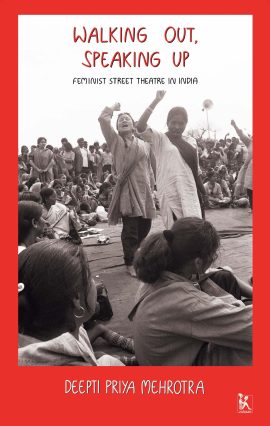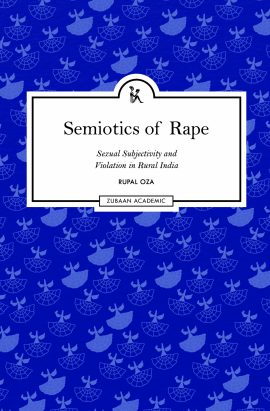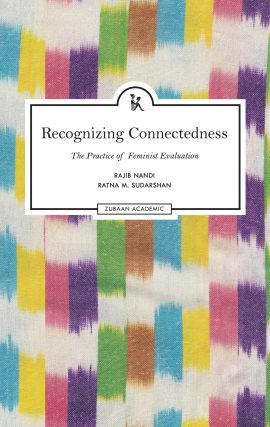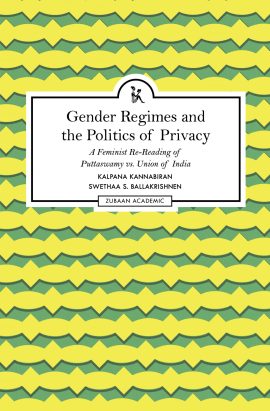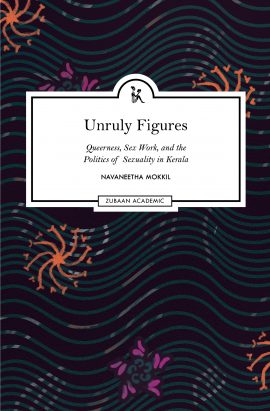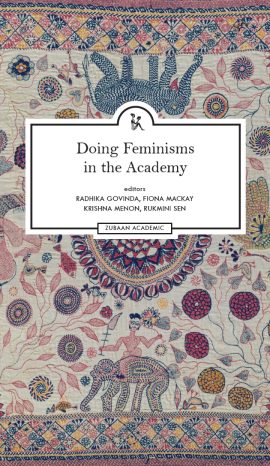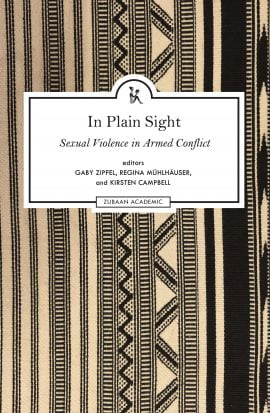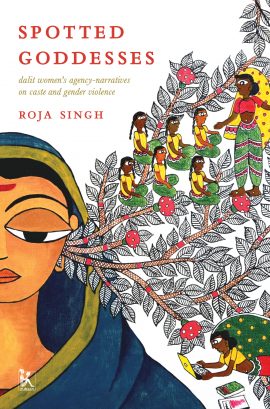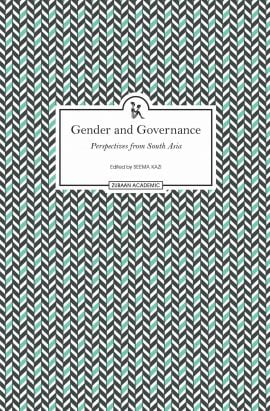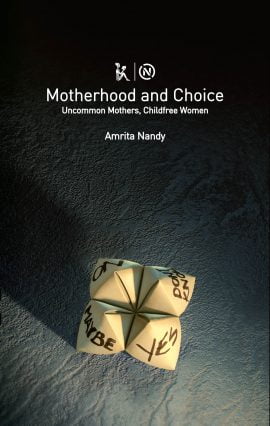No products in the cart.
Return To Shop
Log in / Sign in
Login
Register
Diverting the Flow: Gender Equity and Water in South Asia
From ₹ 680
Across the South Asian region, water determines livelihoods and in some cases even survival. However, water also creates exclusions. Access to water, and its social organisation, are intimately tied up with power relations. This book provides an overview of gender, equity and water issues relevant to South Asia. The essays empirically illustrate and theoretically argue how gender intersects with other axes of social difference such as class, caste, ethnicity, age and religion to shape water access, use and management practices. Divided into six thematic sections, each of which starts with an introduction of relevant concepts, debates and theories, the book looks at laws and rights, policies, technologies and intervention strategies. In all, the book clearly shows how understanding and changing the use, distribution and management of water is conditional upon understanding and accommodating gender relations.
Select format
This product has multiple variants. The options may be chosen on the product page Walking Out, Speaking Up: Feminist Street Theatre in India
From ₹ 560
An energetic era of feminist street theatre in India: 1979 onwards. Stunning, audacious plays vividly portray abuse, murder and everyday sexism, raise profound questions, disrupting the normative. Public performance embodies resistance, shattering the mould of docile, invisible women. Rhythms of tambourines, drums, songs fill the air, stories are enacted, insights communicated, challenging entrenched patriarchies, evoking audience response, sparking change.A remarkable repertoire of plays unfolded across geographical and social contexts: Om Swaha, Ehsaas, Mulgi Zali Ho, Intezaar, Teri Meri Kahani, Hum Awaz Uthayeinge and hundreds more. Weaving social critique with intimate felt experience, they exposed dowry killings, sati, bigotry, sexual violence, overwork, discrimination and exploitation within families, workplaces, society and state—and showed rebellion brewing. This was a theatre of rage, pain, protest, in sync with the autonomous women’s movement of the time.Perceptive, outspoken women emerged out of a morass of ascribed roles to carve their own identities, remake the world. Protagonists broke many silences, told precious stories, offered alternative imaginaries. Fiction merged with documentary, searing content with rich aesthetics. Pithy dialogues articulated complex ideas in familiar idioms, heralding increasingly nuanced discourse around gender, citizenship and dissent, influencing media, academia, law and policy.Incorporating oral histories, auto-ethnography, scripts, visuals, archival material, meticulous research and multi-layered analysis, Deepti Priya Mehrotra’s carefully crafted study is an invaluable resource for understanding feminist street theatre, oppositional politics and counter-cultures in modern India.______________________________________________________________________________________Deepti Priya Mehrotra is a political scientist with trans-disciplinary interests. She has engaged with street theatre and the women’s movement since the late 1970s. Writing in English and Hindi, her books include Gulab Bai: the Queen of Nautanki Theatre, Home Truths: Stories of Single Mothers, Burning Bright: Irom Sharmila and the Struggle for Peace in Manipur, Her Stories: Thinkers, Workers, Rebels, Queens, Bharatiya Mahila Andolan: Kal Aaj aur Kal and Jaggi Devi: Svatantrata ki Raah Par. Deepti has taught political science, sociology, gender studies and media studies, variously at Delhi University, TISS-Mumbai, Dayalbagh Educational Institute, Agra, Ambedkar University, Delhi and the Institute of Mass Communication, Delhi. Currently, she is working on a photo archive of the autonomous women’s movement, teaching a course in educational philosophy, and collaborating with social organisations in activist, research and advisory roles. In her dissentful heart, she continues to dream of acting and singing, loudly in order to shatter the sorry scheme of things and remould it nearer to the heart’s desire.
Select format
This product has multiple variants. The options may be chosen on the product page Kal Rituals
₹ 795The first in a series of publications emerging from the transoceanic platform kal, RITUALS proposes queer and trans-feminist ecologies, embodiments and mythmaking. The contributions trace and disrupt cross-colonial legacies through bodies of water lapping at the shorelines of the Arabian Sea, the Indian Ocean, and the Atlantic. kal RITUALS is an ode to transterritorial alliances that disrupt binary contours of time and being.
kal RITUALS assembles practices of queer world building in extended pandemic time, amidst deep ecological and social transformations, offering an expression of anti-colonial resistance and joy.
_____________________________________________________________________________________kal RITUALS is a collective work by The Many Headed Hydra. Connecting art, research and publishing, The Many Headed Hydra magazines engage bodies of water as ecological collectivities and tidal archives to set resistant knowledges into motion.
This publication emerges from a language where yesterday and tomorrow are the same word. kal., an self-organized artistic platform spanning Karachi, Colombo, Berlin and beyond.
Semiotics of Rape
₹ 795In Semiotics of Rape, Rupal Oza follows the social life of rape in rural northwest India to reveal how rape is not only a violation of the body but a language through which a range of issues—including caste and gender hierarchies, control over land and labor, and the shape of justice—are contested. Rather than focus on the laws governing rape, Oza closely examines rape charges to show how the victims and survivors of rape reclaim their autonomy by refusing to see themselves as defined entirely by the act of violation. Oza also shows how rape cases become arenas where bureaucrats, village council members, caste communities, and the police debate women’s sexual subjectivities and how those varied understandings impact the status and reputations of individuals and groups. In this way, rape gains meaning beyond the level of the survivor and victim to create a social category. By tracing the shifting meanings of sexual violence and justice, Oza offers insights into the social significance of rape in India and beyond.
______________________________________________________________________________________RUPAL OZA is Professor of Women and Gender Studies at Hunter College, City University of New York, and author of The Making of Neoliberal India: Nationalism, Gender, and the Paradoxes of Globalization.
Recognizing Connectedness: The Practice of Feminist Evaluation
From ₹ 525
The concept of programme evaluation, now more than half a century old, refers to the practice of professional assessment of a programme that is informed by evidence and guided by evaluative thinking to arrive at a judgement about value, merit, worth, significance and utility. Good programme evaluations in general adopt an inclusive development approach rather than a transformative approach. Feminist evaluations, by contrast, identify a wide range of stakeholders and engage the larger community in order to identify, and encourage the programme to challenge social norms that perpetuate inequalities between men and women and other genders. The essays in this volume, in different ways, suggest that gender transformative change cannot happen through the actions or exercise of agency by one group alone – whether it is girls, or boys, or women. Instead the authors draw out the importance of ‘connectedness’ between groups of people and between individual agents and the larger structures within which they are located. In doing so, they apply a feminist lens to a range of programme evaluations and policies at both the national level and at the level of specific states (Uttarakhand, Delhi, Bihar, Haryana, Rajasthan and Tamil Nadu).
RAJIB NANDI is Associate Director at the Institute of Social Studies Trust, New Delhi with 22 years of experience in gender transformative research and evaluation. He has an M.Phil degree in applied Economics from the Centre for Development Studies, a doctoral degree in Sociology from Jawaharlal Nehru University, New Delhi and a post-graduate certificate in Development Evaluation (IPDET) from the University of Bern. Rajib’s areas of work cover gender and development, social and solidarity economy, information and communications technologies, programme evaluations, and evaluative studies. He is a founder and core group member of the Evaluation Community of India. Presently he is the Governing Board Member of the Community of Evaluators–South Asia and a Council Member with the International Evaluation Academy (IEAc). RATNA M. SUDARSHAN is a Trustee and former Director of the Institute of Social Studies Trust (ISST). She has been on the research staff at the National Council of Applied Economic Research and a National Fellow at the National Institute of Educational Planning and Administration. Her research has mainly focused on the linkages between women’s work, the informal economy and education.
Select format
This product has multiple variants. The options may be chosen on the product page "This rich volume deepens understanding on the theory and practice of feminist evaluation. It offers insights on whether programmes and policies can address gender inequities, especially when they are designed, implemented, and evaluated in systems that are deeply inequitable. The authors grapple with, and push against, the limitations of traditional evaluation frameworks. They explore institutional factors and barriers which shape and impede individual agency, choice, aspirations, and behaviours, and offer new approaches, insights, tools, and frameworks for other evaluation theorists and practitioners...Spanning feminist and Dalit theory, evaluation theory, gender programming, and covering a range of different sectoral programme cases while also moving between the conceptual and practical, this rich volume offers both new insights and practical tools for deepening feminist evaluation practice." — Katherine Hay, Deputy Director, Bill and Melinda Gates Foundation
RAJIB NANDI is Associate Director at the Institute of Social Studies Trust, New Delhi with 22 years of experience in gender transformative research and evaluation. He has an M.Phil degree in applied Economics from the Centre for Development Studies, a doctoral degree in Sociology from Jawaharlal Nehru University, New Delhi and a post-graduate certificate in Development Evaluation (IPDET) from the University of Bern. Rajib’s areas of work cover gender and development, social and solidarity economy, information and communications technologies, programme evaluations, and evaluative studies. He is a founder and core group member of the Evaluation Community of India. Presently he is the Governing Board Member of the Community of Evaluators–South Asia and a Council Member with the International Evaluation Academy (IEAc). RATNA M. SUDARSHAN is a Trustee and former Director of the Institute of Social Studies Trust (ISST). She has been on the research staff at the National Council of Applied Economic Research and a National Fellow at the National Institute of Educational Planning and Administration. Her research has mainly focused on the linkages between women’s work, the informal economy and education.
Gender Regimes and the Politics of Privacy: A Feminist Re-Reading of Puttaswamy vs. Union of India
From ₹ 550
In 2017 an all-male nine-judge bench of the Indian Supreme Court delivered the landmark Justice K.S. Puttaswamy & Ors v. Union of India judgment on privacy. In this book, the authors look at the embodiment of privacy in the judgment to examine the ways in which the bench articulated the question of gender. They argue that while Puttaswamy has been central in clarifying the extent of (and extensions to) the right to privacy as a fundamental right, the discourse on this has long existed in India — in various gendered social movements, policy-making around women’s rights, feminist historiography, and discourses on the family, sexual rights, autonomy and choice (in and outside courts), dignity, and critiques of surveillance — and provides an important context within which the judgment becomes especially relevant.The authors unpack the underlying logics of the right to privacy within the default prism of the notional identity of the normative household and offer an entry point to re-read existing jurisprudence on rape, sexual assault, sexual harassment, atrocity, and sexual violence and humiliation under conditions of mass violence. They suggest a springboard for the possibility of theorizing personhood within the right to privacy, arguing that while the judgment sets up radical precedent on the questions of sexual minorities, it remains trapped in a reductionist reading of the female body within heteronormativity.
KALPANA KANNABIRAN works at the intersections of sociology, law, and gender studies. A co-founder of Asmita Resource Centre for Women, Secunderabad, she has taught at NALSAR University of Law, Hyderabad (1999-2009), and was a regional director at the Council for Social Development, Hyderabad (2011-2021). She is the author of Tools of Justice: Non-Discrimination and the Indian Constitution (2012) and editor of Violence Studies (2016), among others.SWETHAA S. BALLAKRISHNEN is an assistant professor of Law (and by courtesy, Sociology, Asian American Studies, and Criminology, Law and Society) at the University of California, Irvine. Their research, teaching, and service are primarily focused on law’s connection to actors and relationships at the periphery, usually around identities, queers, and souths. Their writings have appeared in several journals, and their books include Accidental Feminism (2021) and Invisible Institutionalisms (co-edited, 2021).
Select format
This product has multiple variants. The options may be chosen on the product page KALPANA KANNABIRAN works at the intersections of sociology, law, and gender studies. A co-founder of Asmita Resource Centre for Women, Secunderabad, she has taught at NALSAR University of Law, Hyderabad (1999-2009), and was a regional director at the Council for Social Development, Hyderabad (2011-2021). She is the author of Tools of Justice: Non-Discrimination and the Indian Constitution (2012) and editor of Violence Studies (2016), among others.SWETHAA S. BALLAKRISHNEN is an assistant professor of Law (and by courtesy, Sociology, Asian American Studies, and Criminology, Law and Society) at the University of California, Irvine. Their research, teaching, and service are primarily focused on law’s connection to actors and relationships at the periphery, usually around identities, queers, and souths. Their writings have appeared in several journals, and their books include Accidental Feminism (2021) and Invisible Institutionalisms (co-edited, 2021).
Unruly Figures: Queerness, Sex Work, and the Politics of Sexuality in Kerala
From ₹ 550
The vibrant media landscape of Kerala, where kiosks overflow with magazines and colourful film posters line roadside walls, creates a sexually charged public sphere that has a long history of political protests. The 2014 ‘Kiss of Love’ campaign garnered national attention, sparking controversy as images of activists kissing in public and dragged into police vans flooded the media.In Unruly Figures, Navaneetha Mokkil tracks the cultural practices through which sexual figures — particularly the sex worker and the lesbian — are produced in the public imagination. Her analysis includes representations of the prostitute figure in popular media, trajectories of queerness in Malayalam films, public discourse on lesbian sexuality, the autobiographical project of sex worker and activist Nalini Jameela, and the memorialization of murdered transgender activist Sweet Maria, showing how various marginalized figures stage their own fractured journeys of resistance in the post-1990s context of globalization.By bringing a substantial body of Malayalam literature and media texts on gender, sexuality, and social justice into conversation with current debates around sexuality studies and transnational feminism in Asian and Anglo-American academia, Mokkil reorients the debates on sexuality in India by considering the fraught trajectories of identity and rights.
NAVANEETHA MOKKIL is assistant professor at the Centre for Women’s Studies at Jawaharlal Nehru University. She is the co-editor of Thinking Women: A Feminist Reader.
Select format
This product has multiple variants. The options may be chosen on the product page ‘Unruly Figures provides a provocative and theoretically rich account of the uneven terrain of contemporary sexual politics.’ — Gender & Society
‘Social commitment and intellectual vigour make this journey adventurous, and the author transmits its spirit through her evocative, lyrical writing.’ — Review of Development Change
‘In the long history of writing about queer theory both in South Asia and beyond, Mokkil’s study is unique in bringing Kerala and sexuality studies together in a powerfully pointed yet capacious way.’ — Geeta Patel, Author of Risky Bodies and Techno-Intimacy: Reflections on Sexuality, Media, Science, Finance
‘Mokkil deftly reads, in an in-depth and sustained manner, a range of materials that constitute zones of publicity and intimacy in Kerala, drawing out how figurations of gender and sexuality mark this fraught terrain. Linking Indian and Anglo-American feminist and queer studies to these readings, the analysis makes a strong case for the importance of the regional as a site for new directions in critical scholarship.’ — Ritty Lukose, Author of Liberalizations’s Children: Gender, Youth, and Consumer Citizenship in Globalizing India
NAVANEETHA MOKKIL is assistant professor at the Centre for Women’s Studies at Jawaharlal Nehru University. She is the co-editor of Thinking Women: A Feminist Reader.
Doing Feminisms in the Academy: Identity, Institutional Pedagogy and Critical Classrooms in India and the UK
From ₹ 550
This collection of essays brings together auto-ethnographic, critical and comparative reflections on doing feminisms in the academy in contemporary India and the UK. Written by emergent and seasoned academics from a range of disciplinary, social and (geo)political locations, these essays explore the transformative potential, dilemmas and challenges of teaching, learning, researching and working as feminist academics. By engaging with questions of identity and difference, institutional and classroom pedagogies, reflexivity and accountability, and the production and circulation of feminist and non-feminist knowledge, the essays in this collection also provide the frame and the lens through which to view the wider landscape of contemporary higher education.Anchored in feminist scholarship and written in an accessible style, the collection will be useful to those interested in feminist, women's and gender studies, and more broadly those keen to pursue equality in higher education and decentring of knowledge production globally.
RADHIKA GOVINDA is a Lecturer in Sociology at the University of Edinburgh, UK. Her work examines gender politics at the intersections of caste, class, race and religion in women's and social movements, in development policies and practice, in everyday social relations in rural and urban spaces, and in the global dynamics of knowledge production.FIONA MACKAY is Professor of Politics and Director of genderED, the University of Edinburgh’s interdisciplinary hub for gender and sexualities studies. She teaches and researches in the areas of gender and politics. She founded and co-directs the Feminism and Institutionalism International Network.KRISHNA MENON is a Professor of Gender Studies, and currently Dean of the School of Human Studies, Ambedkar University Delhi. She is also Associate Editor of the International Feminist Journal of Politics and author of Social Movements in Contemporary India (2019).RUKMINI SEN is Professor of Sociology in the School of Liberal Studies, Ambedkar University Delhi. Her research and teaching interests are in the areas of sociology of law, feminist pedagogy, narrative methods, relationships and intimacies. She is a member of the Indian Association for Women’s Studies and has served on its Executive Committee.
Select format
This product has multiple variants. The options may be chosen on the product page RADHIKA GOVINDA is a Lecturer in Sociology at the University of Edinburgh, UK. Her work examines gender politics at the intersections of caste, class, race and religion in women's and social movements, in development policies and practice, in everyday social relations in rural and urban spaces, and in the global dynamics of knowledge production.FIONA MACKAY is Professor of Politics and Director of genderED, the University of Edinburgh’s interdisciplinary hub for gender and sexualities studies. She teaches and researches in the areas of gender and politics. She founded and co-directs the Feminism and Institutionalism International Network.KRISHNA MENON is a Professor of Gender Studies, and currently Dean of the School of Human Studies, Ambedkar University Delhi. She is also Associate Editor of the International Feminist Journal of Politics and author of Social Movements in Contemporary India (2019).RUKMINI SEN is Professor of Sociology in the School of Liberal Studies, Ambedkar University Delhi. Her research and teaching interests are in the areas of sociology of law, feminist pedagogy, narrative methods, relationships and intimacies. She is a member of the Indian Association for Women’s Studies and has served on its Executive Committee.
In Plain Sight: Sexual Violence in Armed Conflict
From ₹ 398
In the mid 1970s, at the peak of the women’s movement, feminist activism and research opened the door to questions that are still pressing today. While sexual violence has gained public awareness and become a subject in academic debate, efforts to understand and strategies to prevent this form of violence remain inadequate. Who are the perpetrators? How is sexual violence tied to other forms of violence? What are the consequences for individual victims and societies?Compiled by the International Research Group ‘Sexual Violence in Armed Conflict’ (SVAC), this volume takes an interdisciplinary approach to understanding wartime sexual violence. Its enquiry employs four key relationships: War/Power, Violence/Sexuality, Gender/Engendering and Visibility/Invisibility. Through these, the authors identify gaps in existing knowledge to develop a deeper and more nuanced understanding of the field.This volume is the result of long-standing cooperation. The International Research Group ‘Sexual Violence in Armed Conflict’ (SVAC) is a network of interdisciplinary scholars and NGO experts founded in October 2010. Sociologists, philosophers, historians, literary and legal scholars as well as NGO professionals from Europe, the US, Asia and Africa bring together empirical and theoretical studies focusing on sexual violence in different theatres of armed conflict. The group compares source material and promotes the systematic development of research questions and methods.
GABY ZIPFEL is a Founder of the International Research Group ‘Sexual Violence in Armed Conflict’ (SVAC). She is a Senior Researcher at the Hamburg Foundation for the Advancement of Research and Culture in Germany, and was previously an editor of Mittelweg 36, the journal of the Hamburg Institute for Social Research. She is also a member of the Eurozine Advisory Board.REGINA MÜHLHÄUSER is a Senior Researcher at the Hamburg Foundation for the Advancement of Research and Culture and an Associate Researcher at the Hamburg Institute for Social Research. She is a Founder of the International Research Group ‘Sexual Violence in Armed Conflict’, and has previously worked at the Nazi concentration camp memorial sites in Neuengamme and Ravensbruck.KIRSTEN CAMPBELL is a Reader in the Department of Sociology at Goldsmiths College, University of London, where she teaches sociology of law and social theory. She is the Principal Investigator of ‘The Gender of Justice’ project, which examines the prosecution of sexual violence in armed conflict under international criminal law, focusing upon the International Criminal Tribunal for the former Yugoslavia.
Select format
This product has multiple variants. The options may be chosen on the product page GABY ZIPFEL is a Founder of the International Research Group ‘Sexual Violence in Armed Conflict’ (SVAC). She is a Senior Researcher at the Hamburg Foundation for the Advancement of Research and Culture in Germany, and was previously an editor of Mittelweg 36, the journal of the Hamburg Institute for Social Research. She is also a member of the Eurozine Advisory Board.REGINA MÜHLHÄUSER is a Senior Researcher at the Hamburg Foundation for the Advancement of Research and Culture and an Associate Researcher at the Hamburg Institute for Social Research. She is a Founder of the International Research Group ‘Sexual Violence in Armed Conflict’, and has previously worked at the Nazi concentration camp memorial sites in Neuengamme and Ravensbruck.KIRSTEN CAMPBELL is a Reader in the Department of Sociology at Goldsmiths College, University of London, where she teaches sociology of law and social theory. She is the Principal Investigator of ‘The Gender of Justice’ project, which examines the prosecution of sexual violence in armed conflict under international criminal law, focusing upon the International Criminal Tribunal for the former Yugoslavia.
Spotted Goddesses: Dalit Women’s Agency-Narratives on Caste and Gender Violence
₹ 795During the current COVID-19 surge we are shipping orders from Delhi once per week. Please allow 8-10 business days for delivery.
Spotted Goddesses is an ethnography of caste, gender and Dalit women’s leadership. Situated within the ambit of transnational feminisms, this book is rooted in interactions and lived experiences of Dalit women in Tamil Nadu. Singh’s intersectional perspective as a Dalit woman provides a consummate analysis of the power structures that shape the foundation of caste dominance in South India today. She describes strategies of social change in Dalit women’s activism as embedded in the urge to upend and subvert imposed identities of ‘difference’ in a mode of resistance which fearlessly thwarts social compartments and punishment traditions.Built around a powerful core which is primarily shaped by Dalit women’s songs, and oral and written testimonial narratives, including Singh’s personal story, this interdisciplinary work is a searing vindication of Dalit women’s right to rise and rage against the shackles of Brahminical patriarchy.“…powerfully describes how Dalit women free themselves from the degrading stereotypes of impurity, inferiority and inequality…” — Bama, author of Karukku and Sangati
“…personal and profound, Singh smashes disciplinary boundaries while illuminating the lived experiences of women who have long been marginalized by traditional feminist discourse…” — Smita Narula, author of Broken People: Caste Violence Against India’s ‘Untouchables’
“A powerful, poignant treatment of the Dalit plight and predicament with a courageous vision of resistance.” — Dr. Cornel West, scholar, writer, activist and philosopher
ROJA SINGH teaches interdisciplinary studies including Anthropology, Sociology and Women and Gender Studies at St. John Fisher College, Rochester, New York. Her ongoing research involves the oral narratives and leadership strategies of women from indigenous communities. She is president of the Dalit Solidarity Forum USA.
Gender and Governance: Perspectives from South Asia
From ₹ 398
This book examines the structures of governance as they impact women in five conflict zones in South Asia: Swat in Pakistan, the Chittagong Hill Tracts in Bangladesh, the Northern Province in Sri Lanka, and Kashmir and Manipur in India.Despite their different historical and political contexts, the five studies included here throw up some common patterns. War and conflict have weakened and eroded existing formal structures and institutions of governance. New formations, whether made up of militant groups, or more ‘secular’ state institutions like armies, do not see women as rights-bearing actors. Further, the authors argue, the impact of war, conflict, settlerism and militancy can make state structures more distant and sometimes incomprehensible to citizens, leaving women’s specific gender concerns unaddressed.Taken together, the essays show that women’s relationship with governance institutions is complex, and combines dependence on such institutions with the challenge of dealing with new forms of patriarchy that take root as structures transform and change. The gendering of governance policy and practice therefore, is of crucial importance.CONTRIBUTORS: Amena Mohsin | Delwar Hossain | Nazish Brohi Saba Gul Khattak | Malathi De Alwis | Udhayani Navaratnam | Nima Lamu Yolmo | Shaheena Parveen | Ayesha Parvez | Seema Kazi
Select format
This product has multiple variants. The options may be chosen on the product page Motherhood and Choice: Uncommon Mothers, Childfree Women
From ₹ 398
How can women live fully? If autonomy is critical for humans, why do women have little or no choice vis-à-vis motherhood? Do women know they have a choice, if they do? How 'free' are these choices in a context where the self is socially mired and deeply enmeshed into the familial? What are implications of motherhood on how human relatedness and belonging are defined?These questions underlie Amrita Nandy's remarkable research on motherhood as an institution, one that conflates 'woman' with 'mother' and 'personal' with 'political'.As the bedrock of human survival and an unchallenged norm of 'normal' female lives, motherhood expects and even compels women to be mothers—symbolic and corporeal. Even though the ideology of pronatalism and motherhood reinforce reproductive technology and vice versa, the care work of mothering suffers political neglect and economic devaluation. However, motherhood (and non-motherhood) is not just physiological. As the pivot to a web of heteronormative institutions (such as marriage and the family), motherhood bears an overwhelming and decisive influence on women's lives. Against the weight of traditional and contemporary histories, socio-political discourse and policies, this study explores how women, as embodiments of multiple identities, could live stigma-free, 'authentic' lives without having to abandon reproductive 'self'-determination.
Select format
This product has multiple variants. The options may be chosen on the product page Contact Us
© Zubaan 2019. Site Design by Avinash Kuduvalli.
Payments on this site are handled by CCAvenue.

